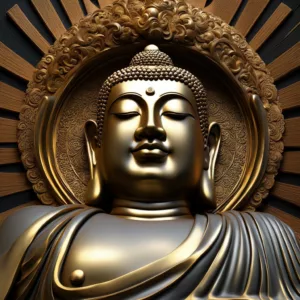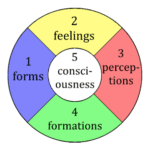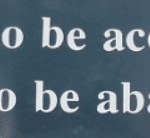
Is Tantra dangerous? Yes. Dangers include inflated pride (based on actual realization), insanity, paranoia, extreme states of mind, abuse of power, and disconnectedness from commonly shared reality – temporary psychosis. Tantra is a powerful method with many benefits, but it can be misapplied.
I have personally found that tantra needs a couple of things to be truly dangerous. A highly advanced practice. My experience is that people doing tummo are highly susceptible to negative outcomes. This is because of the psychophysical aspects.
Working so powerfully with the breathing can alter the physiological integration of body and mind. It’s meant to! But if we don’t understand how to do it in a measured way and if we don’t have a very strong base in stability meditation, we can lose our sanity in the process.
Table of Contents
Tantric Practices
Tantra, with its roots in ancient Indian spiritual traditions, encompasses a diverse range of practices that aim to explore and integrate the physical, mental, and spiritual aspects of life. While Tantra is often associated with sacred sexuality, it goes beyond the realm of intimate connections to include rituals, meditation, and philosophical teachings.
However, as Tantra has gained attention, questions and concerns about its safety and compatibility with other belief systems, such as Christianity, have emerged.
Is Tantra Dangerous? List of Dangers
Dangers in Tantra
While Tantra is a profound spiritual path, it is crucial to approach its practices with discernment and respect for their transformative power. Like any spiritual discipline, Tantra can pose challenges if misunderstood or misused. Here is a list of potential dangers:
- Misinterpretation: Tantra can be misinterpreted, leading to superficial or misguided practices that may not yield the intended spiritual benefits.
- Unqualified Teachers: Learning Tantra from unqualified or unethical teachers can pose risks. Seek guidance from experienced and authentic practitioners to avoid potential pitfalls.
- Energetic Imbalances: Intensive energy practices in Tantra, if not approached with care, can lead to imbalances in the subtle energy system, causing physical or psychological distress.
- Sexual Misuse: Tantra’s association with sexuality can be misunderstood, leading to the misuse of sexual energy. Practitioners should approach Tantric sexuality with ethics, consent, and a deep understanding of its spiritual context.
- Psychological Challenges: Intensive Tantric practices may bring suppressed emotions to the surface, potentially triggering psychological challenges. Adequate preparation and guidance are essential.
Tantra’s Dangers: Loss of critical intelligence
Unfortunately, tantra demands a high level of faith in the human guru. This is often abused, sometimes unintentionally, to tell students not to analyze with their own critical faculties. The counter to this is to never surrender critical faculties. Don’t do dangerous or abhorrent things, for one. If the assignment is perplexing, ask for clarification.
At the same time, many things can only be understood by doing. Tantra is such a thing. So at some level, you have to trust. If the task is not dangerous or morally repugnant, then it’s a good idea to at least try, even if it makes no sense. Often these tasks are there to cut through preconceptions, so it’s natural they would seem odd. But on the other side is a level of freedom.
Misinterpretation and Misuse
One potential danger in Tantra lies in its misinterpretation and misuse. Due to its intimate nature, some individuals may exploit Tantric practices for personal gain, leading to unethical behaviors. It is crucial to approach Tantra with respect, understanding, and a genuine commitment to its principles to avoid potential pitfalls.
Tantra’s Dangers: Pride
When students attain a certain level of realization, they can develop spiritual pride, believing they have greater wisdom than their teacher. They can also switch identities, to over-identification with the yidam. The concern here is the yidam, instead of representing selfless enlightened energy, becomes the ego. In this case, the ego becomes demonic. Rudra is the story of one student who took this to the ultimate extreme.
Rechungpa is a classic example of a student who challenged his own teacher out of arrogance. Milarepa compassionately showed Rechungpa how to remain in a state of devotion and love with your teacher and Rechungpa worked through the obstacle.
Is Tantra Dangerous: Lack of Guidance
Engaging in Tantric practices without proper guidance can pose risks. Tantra involves energy work, meditation, and rituals that require a nuanced understanding. Without appropriate instruction, individuals may encounter challenges in navigating these practices, potentially leading to unintended consequences.
Is Tantra Dangerous: Psychological Impact
Some Tantric practices involve intense introspection and exploration of one’s desires and vulnerabilities. Without proper psychological preparation, individuals may find themselves confronting unresolved issues or emotional challenges, potentially impacting their mental well-being.
Is Tantra Against Christianity?
Compatibility with Christianity
The question of whether Tantra is against Christianity often arises due to differences in their philosophical and theological foundations. While Tantra originates from Hindu and Buddhist traditions, it is not inherently incompatible with Christianity. Like any spiritual practice, the interpretation and integration of Tantra into one’s belief system depend on individual perspectives and the level of openness within the Christian community.
On the other hand, an acquaintance took a fellow to a Tantric initiation. The new fellow in the middle blurted out, “this is devil worship!” and left. Certain Christian sects feel that any tradition not based on Christ is false and the work of Satan. The answer is ‘it depends.’ It depends, of course, on who you talk to.
Interfaith Dialogue
Some practitioners explore the intersections between Tantra and Christianity through interfaith dialogue and spiritual exploration. Approaching Tantra with an open mind and seeking common ground can foster understanding and bridge the perceived gaps between these diverse spiritual traditions.
Is Tantra a Sin? (is tantra dangerous?)
Moral Interpretations
The concept of sin is deeply rooted in religious traditions, and the question of whether Tantra is a sin depends on one’s moral and religious perspectives. Tantra’s focus on embracing desires and transcending dualities may challenge traditional views on morality, leading to varying interpretations within religious communities.
Individual Beliefs
Ultimately, whether Tantra is considered a sin is a matter of personal belief and interpretation. Some individuals may find that Tantric practices align with their spiritual journey, while others may perceive them as conflicting with their moral values. Open and respectful dialogue about these differences can contribute to mutual understanding and acceptance.
Is Tantra Dangerous: Tantric Relationships
Beyond the Physical
Tantric relationships go beyond conventional notions of intimacy. They emphasize deep emotional connection, energetic exchange, and spiritual communion between partners. Tantric practices within relationships aim to cultivate mutual growth, self-awareness, and a harmonious balance of masculine and feminine energies.
Challenges and Rewards
Engaging in Tantric relationships requires open communication, trust, and a willingness to explore vulnerability. While the potential rewards include heightened intimacy and spiritual connection, the challenges may arise from addressing unspoken desires, insecurities, and emotional blockages.
How to meditate like a yogi
and enter profound samadhi
Is Tantra Dangerous: How to Get Tantric Power
Clarifying Intentions
The pursuit of Tantric power must be approached with clear intentions and a commitment to ethical practices. Tantra emphasizes the responsible and conscious use of energy, urging practitioners to align their desires with higher spiritual goals rather than seeking power for egoistic purposes.
Proper Guidance
Seeking guidance from experienced Tantra teachers or mentors is essential for safely exploring Tantric power. Proper instruction ensures that individuals understand the nuances of energy work, meditation, and rituals, minimizing potential risks associated with misinterpretation or misuse.
Ethical Considerations
Tantric power, when harnessed ethically, is aligned with the principles of love, compassion, and spiritual evolution. Practitioners are encouraged to cultivate awareness, empathy, and a sense of responsibility to ensure that their exploration of Tantric power contributes positively to their own growth and the well-being of others.
Is Tantra Good or Bad?
Nuanced Perspective
The question of whether Tantra is good or bad lacks a definitive answer, as it depends on one’s perspective, intentions, and ethical considerations. Tantra, like any spiritual practice, holds the potential for both positive and negative outcomes based on how it is approached and integrated into one’s life.
Intention and Context
The goodness or perceived negativity of Tantra is often rooted in intention and context. When approached with genuine curiosity, respect, and a commitment to ethical principles, Tantra can be a transformative and positive force in one’s spiritual journey.
Is Tantra Real? If so, is it Dangerous?
Historical Roots
Tantra has historical roots in ancient Indian traditions, with evidence of its existence dating back thousands of years. Its authenticity is recognized in Hinduism and Buddhism, where Tantric teachings are integral components of these spiritual paths.
It’s difficult to say if Tantra is real in terms of spiritual attainments. By practicing it in serious retreat, the reality of it becomes vividly apparent. With focused Tantric practice, meaningful experiences will occur that are not in the ordinary realm. This acts as a verification of the view that mind creates its own reality which can be transcended.
Contemporary Practice
In the contemporary world, Tantra continues to be practiced by individuals seeking a holistic approach to spirituality. The authenticity of Tantra lies in its lived experience, with practitioners attesting to the transformative impact of its teachings on their lives.
Secrets of Meditation for Anxiety
Like millions of people, you may have suffered from anxiety for years. Meditation, yoga, peaceful music – it never works. It takes too long, and it’s not stable. Why? Because peace is treated as a cause for freedom, but it’s not – it’s the result. The cause to free yourself from anxiety is completely different.
Click now to Overcome Anxiety for good.
Conclusion
The question of whether Tantra is dangerous involves a nuanced exploration of its practices, potential pitfalls, and ethical considerations. Tantra, when approached with respect, understanding, and ethical intent, can be a powerful tool for spiritual growth, intimacy, and self-realization. Misinterpretation, lack of guidance, and cultural appropriation can contribute to potential dangers, highlighting the importance of responsible engagement with Tantric practices. The compatibility of Tantra with Christianity or its alignment with personal beliefs about sin depends on individual perspectives and interpretations. Ultimately, the exploration of Tantra requires a thoughtful and discerning approach, fostering a deep understanding of its principles and a commitment to ethical conduct in the pursuit of spiritual evolution.

May all beings be happy
May all beings be peaceful
May all beings be safe
May all beings awaken to the light of their true nature
May all beings be free








